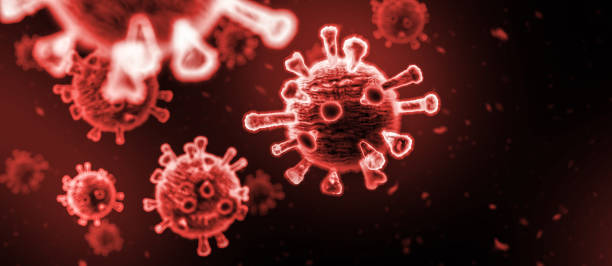Title: Coronavirus Timeline: A Journey Through the Pandemic
Introduction:
The coronavirus pandemic, caused by the novel coronavirus SARS-CoV-2, has been one of the most significant global health crises in recent history. Since its emergence in late 2019, the virus has swept across continents, challenging healthcare systems, economies, and societies worldwide. This timeline provides a comprehensive overview of key events, discoveries, and milestones during the pandemic, highlighting the remarkable journey from the virus's discovery to ongoing efforts for recovery.
The coronavirus outbreak was first reported in Wuhan, China, in December 2019. The virus was identified as a novel coronavirus, closely related to the SARS virus. Initial cases were linked to a seafood market, leading to concerns about zoonotic transmission. By January 2020, the World Health Organization (WHO) declared a Public Health Emergency of International Concern.
As the virus spread beyond China's borders, countries implemented stringent measures to curb transmission. Lockdowns, travel restrictions, and social distancing measures became common strategies. The virus reached Europe, the Americas, and other regions, overwhelming healthcare systems and causing significant economic disruptions.
Efforts to understand the virus intensified. Rapid testing methods were developed, allowing for quicker diagnosis. Scientists globally collaborated to sequence the virus's genome, enabling a deeper understanding of its genetic makeup. Vaccine development initiatives, utilizing innovative technologies like mRNA, began to gain momentum.
Several vaccines showed promising results in clinical trials by late 2020. Regulatory agencies granted Emergency Use Authorizations for vaccines, and mass vaccination campaigns commenced in various countries. Pfizer-BioNTech, Moderna, AstraZeneca, and Johnson & Johnson were among the first vaccines to receive approval.
New variants of the virus emerged, raising concerns about increased transmissibility and potential vaccine resistance. Researchers and vaccine manufacturers adapted to address these variants, highlighting the need for ongoing surveillance and updates to vaccine strategies.
Vaccine distribution highlighted global inequities, with wealthier nations obtaining more vaccines than low-income countries. Initiatives like COVAX aimed to ensure equitable vaccine access, emphasizing the importance of global cooperation.
As vaccination efforts expanded, many countries began easing restrictions and returning to a semblance of normalcy. However, challenges such as vaccine hesitancy, uneven vaccine coverage, and the potential for new outbreaks remained.
Scientists intensified their research into long-term effects of COVID-19, such as "long COVID," which involves persistent symptoms. Studies also focused on understanding immunity duration post-infection or vaccination.
Booster shots were introduced to enhance immunity, especially in the face of new variants. Countries adopted varying strategies, with some prioritizing vulnerable populations and healthcare workers.
The pandemic's enduring impact extended beyond healthcare, influencing remote work, education, and digital transformation. Global collaboration and lessons learned paved the way for improved pandemic preparedness.
Conclusion:
The coronavirus timeline underscores the resilience of individuals, communities, and the scientific community in the face of unprecedented challenges. From the initial emergence of the virus to the ongoing efforts to achieve global recovery, this timeline showcases humanity's ability to adapt, innovate, and unite during times of crisis. While uncertainties remain, the world's response to the pandemic demonstrates the power of collective action and the importance of maintaining vigilance and preparedness for future health crises.
Introduction:
The coronavirus pandemic, caused by the novel coronavirus SARS-CoV-2, has been one of the most significant global health crises in recent history. Since its emergence in late 2019, the virus has swept across continents, challenging healthcare systems, economies, and societies worldwide. This timeline provides a comprehensive overview of key events, discoveries, and milestones during the pandemic, highlighting the remarkable journey from the virus's discovery to ongoing efforts for recovery.
- Emergence in Wuhan, China (Late 2019 - Early 2020):
The coronavirus outbreak was first reported in Wuhan, China, in December 2019. The virus was identified as a novel coronavirus, closely related to the SARS virus. Initial cases were linked to a seafood market, leading to concerns about zoonotic transmission. By January 2020, the World Health Organization (WHO) declared a Public Health Emergency of International Concern.
- Global Spread and Lockdowns (Early - Mid 2020):
As the virus spread beyond China's borders, countries implemented stringent measures to curb transmission. Lockdowns, travel restrictions, and social distancing measures became common strategies. The virus reached Europe, the Americas, and other regions, overwhelming healthcare systems and causing significant economic disruptions.
- Testing, Genome Sequencing, and Vaccine Development (Mid 2020):
Efforts to understand the virus intensified. Rapid testing methods were developed, allowing for quicker diagnosis. Scientists globally collaborated to sequence the virus's genome, enabling a deeper understanding of its genetic makeup. Vaccine development initiatives, utilizing innovative technologies like mRNA, began to gain momentum.
- Vaccine Approvals and Rollouts (Late 2020 - Early 2021):
Several vaccines showed promising results in clinical trials by late 2020. Regulatory agencies granted Emergency Use Authorizations for vaccines, and mass vaccination campaigns commenced in various countries. Pfizer-BioNTech, Moderna, AstraZeneca, and Johnson & Johnson were among the first vaccines to receive approval.
- Variants and Vaccine Challenges (2021):
New variants of the virus emerged, raising concerns about increased transmissibility and potential vaccine resistance. Researchers and vaccine manufacturers adapted to address these variants, highlighting the need for ongoing surveillance and updates to vaccine strategies.
- Global Disparities and Vaccine Equity (2021):
Vaccine distribution highlighted global inequities, with wealthier nations obtaining more vaccines than low-income countries. Initiatives like COVAX aimed to ensure equitable vaccine access, emphasizing the importance of global cooperation.
- Transitioning Towards Normalcy (2021 - 2022):
As vaccination efforts expanded, many countries began easing restrictions and returning to a semblance of normalcy. However, challenges such as vaccine hesitancy, uneven vaccine coverage, and the potential for new outbreaks remained.
- Continued Research and Long-Term Effects (2021 - 2022):
Scientists intensified their research into long-term effects of COVID-19, such as "long COVID," which involves persistent symptoms. Studies also focused on understanding immunity duration post-infection or vaccination.
- Booster Shots and Evolving Strategies (2022):
Booster shots were introduced to enhance immunity, especially in the face of new variants. Countries adopted varying strategies, with some prioritizing vulnerable populations and healthcare workers.
- Shaping the Post-Pandemic World (2022 - Present):
The pandemic's enduring impact extended beyond healthcare, influencing remote work, education, and digital transformation. Global collaboration and lessons learned paved the way for improved pandemic preparedness.
Conclusion:
The coronavirus timeline underscores the resilience of individuals, communities, and the scientific community in the face of unprecedented challenges. From the initial emergence of the virus to the ongoing efforts to achieve global recovery, this timeline showcases humanity's ability to adapt, innovate, and unite during times of crisis. While uncertainties remain, the world's response to the pandemic demonstrates the power of collective action and the importance of maintaining vigilance and preparedness for future health crises.




